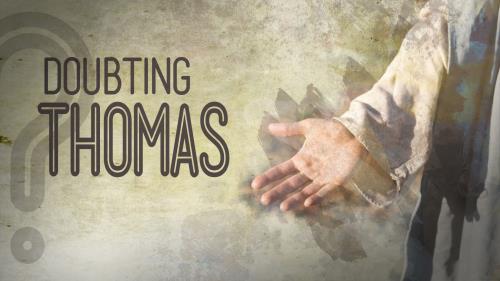-
Three Affirmations Series
Contributed by Freddy Fritz on Oct 9, 2021 (message contributor)
Summary: First John 5:18-21 gives three affirmations that Christians know regarding their spiritual status.
Scripture
Today we are going to conclude the First Letter of John. Last time I mentioned that as John comes to the end of this letter, he wants to instill certainty in his readers about the assurance of their salvation. So, he takes up the theme of what it is that we know in 1 John 5:13-21. John uses the word “know” (oidamen) seven times in these nine verses. We have examined three certainties that John asserted in 1 John 5:13-17. Now, as John concludes his letter, we will examine three affirmations.
Let’s read about John’s three affirmations in 1 John 5:18-21:
18 We know that everyone who has been born of God does not keep on sinning, but he who was born of God protects him, and the evil one does not touch him.
19 We know that we are from God, and the whole world lies in the power of the evil one.
20 And we know that the Son of God has come and has given us understanding, so that we may know him who is true; and we are in him who is true, in his Son Jesus Christ. He is the true God and eternal life. 21 Little children, keep yourselves from idols. (1 John 5:18-21)
Introduction
In 2006, CNN aired a program about Wilfredo Garza, who lived the life of an illegal immigrant for more than 35 years. Year after year, he eked out a living crossing the border from Mexico into the United States – some days finding work, some days not. Regardless, he was constantly looking over his shoulder. He was caught by the Border Patrol four times during those 35 years and bused back to Mexico every time. Undeterred by each apprehension, he swam back across the Rio Grande to try again.
The cycle would likely have continued for several more years if not for an amazing discovery. One day, Wilfredo worked up the courage to walk into an immigration lawyer’s office. There, incredibly, he found out that since his father was born in Texas and spent time working there, Wilfredo was actually a U.S. citizen!
All these years he possessed the very papers – his father’s birth certificate and work records – that proved his citizenship. Yet, for 35 years he lived in guilt and fear.
Today, he has a certificate of US citizenship. He no longer has to sneak across the border. He can walk through the main gate.
This story reminds me of people who profess to be Christians. They attend worship services. They give money to support the worship and work of the church. They attend Bible studies. They are even active in a ministry in the life of the church.
Yet, they have no certainty of their status. They have no assurance of their salvation. They wonder what will happen to them after they die. Will they go to heaven or to hell?
The Apostle John wrote his letter to assure his readers that they may know that they have eternal life. He did not want them to live with uncertainty. He did not want them living in fear regarding their spiritual status and their eternal destiny.
Lesson
First John 5:18-21 gives three affirmations that Christians know regarding their spiritual status.
Let’s use the following outline:
1. We Know How to Live (5:18)
2. We Know Whose We Are (5:19)
3. We Know Whom We Believe (5:20-21)
I. We Know How to Live (5:18)
The first affirmation is that we know how to live.
The first of the “we know” statements at the end of John’s First Letter occurs in verse 18, where he writes, “We know that everyone who has been born of God does not keep on sinning, but he who was born of God protects him, and the evil one does not touch him.”
John makes two assertions about how to live.
A. We Do Not Keep on Sinning (5:18a)
First, we do not keep on sinning.
Look again at what John writes in verse 18a, “We know that everyone who has been born of God does not keep on sinning.” A believer is described as one “who has been born of God.” God has given new life to the believer. He is now a new creation in Christ. He is now adopted into the family of God. Therefore, a believer who has been regenerated by God the Holy Spirit does not continue in habitual sin. The new birth causes new behavior in the new believer. John Stott puts it this way: “Sin and the child of God are incompatible. They may occasionally meet; they cannot live together in harmony.”
Throughout his letter, John has stated and restated three tests by which a person may know that he is a child of God. One of the tests is that of obedience. John has mentioned previously that Christians do not keep on sinning. For example, he said it most clearly in 1 John 3:9, “No one born of God makes a practice of sinning, for God’s seed abides in him; and he cannot keep on sinning, because he has been born of God.”

 Sermon Central
Sermon Central



